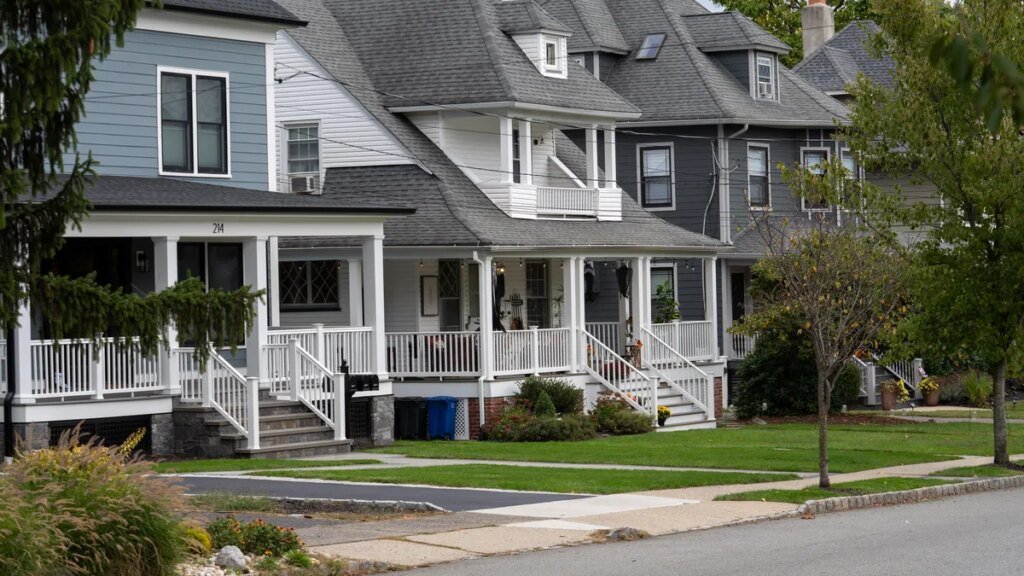
Paramus NJ police and firefighters hand out Thanksgiving turkeys
Paramus first responders handed out hundreds of Thanksgiving turkeys to residents in need Nov. 13, 2025 at Stew Leonard’s.
President Donald Trump recently proposed the idea of creating a new 50-year mortgage as a way to improve housing affordability. And while Federal Housing Finance Agency Director Bill Pulte said it would be “a complete game changer,” others believe it could cost you more in the long run.
“All it means is you pay less per month. Pay it over a longer period of time. It’s not like a big factor. It might help a little bit,” Trump told Fox News’ Laure Ingraham on Nov. 10.
This idea is being floated at a time when many potential homeowners are struggling to get into the market. Interest rates remain elevated, home prices are still on the rise and inventory is still well below pre-pandemic levels.
It’s unclear at this point whether the plan, which would tie borrowers to debt for 20 additional years compared to a 30-year mortgage, would have a higher interest rate than other loan options. But longer loan terms traditionally have higher interest rates, just as 30-year rates are higher than 15-year loans, since they increase a lender’s risk of not being repaid.
“If it’s just an option on a longer term, it’s a good thing,” said Baret Kechian, branch manager of loanDepot in Hoboken. “But if the interest on a 50-year mortgage is going to be half of a percent higher, then I would 100% be against it for my clients because the amount of money it saves per month is not that much to where I would ever want to sacrifice the interest rate.”
A buyer purchasing a $415,000 home with a 20% down payment and a 6.5% interest rate would pay $2,098 per month for a 30-year loan, Investopedia estimated. On the other hand, a buyer purchasing a $415,000 with a 20% down payment and a 7% interest rate — assuming there will be a higher interest rate — would pay $1,998 per month for a 50-year loan.
It would also take homeowners longer to build equity, or to even outright own their home, with a 50-year mortgage.
Investopedia estimates that the buyer of the $415,000 home with a 30-year mortgage would have paid off about $50,000 in principal after 10 years, while the buyer with the 50-year mortgage would have only paid off about $10,000.
“A 50-year mortgage slows down the pace of equity accumulation in a home compared to a 30-year mortgage,” Realtor.com’s senior economic Joel Berner said. “The first years of payments contain more interest and less principal, meaning that you own less of your home after the same amount of payments over a 50-year versus a 30-year.”
The Dodd-Frank Act, which was passed in the years following the 2008 financial crisis, also defines a standard qualified mortgage — those that meet a certain list of standards for lender and consumer protections under the act — as having a maximum term of 30 years.
This means that the law would need to be amended to extend the maximum loan term for qualified mortgages to 50 years, which would require congressional action. And if offered as non-qualified mortgages, lenders would be hesitant to offer them, as they’d be ineligible to get backing from Fannie Mae and Freddie Mac.
“There are so many more things that could be done to make homeownership more affordable that are much better than this 50-year option,” Kechian said.
Maddie McGay is the real estate reporter for NorthJersey.com and The Record, covering all things worth celebrating about living in North Jersey. Find her on Instagram @maddiemcgay, on X @maddiemcgayy, and sign up for her North Jersey Living newsletter. Do you have a tip, trend or terrific house she should know about? Email her at MMcGay@gannett.com.

